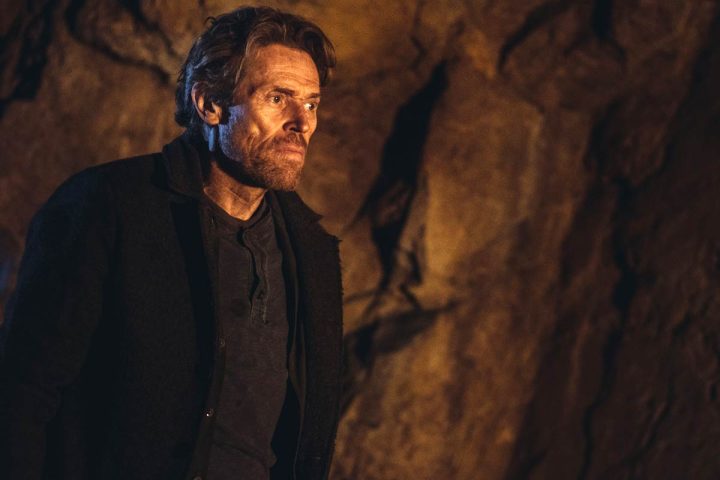
Abel Ferrara’s films see characters torn between the mania of creation and destruction, pushing the human body to the edge of oblivion, with sex, violence, and art clashing within a fiery realm of spiritual ecstasy and moral decay. His latest movie, Siberia, departs somewhat from those expectations. Completing an unofficial trilogy with Pasolini (2014) and Tommaso (2019), it’s situated in the abstract world of the subconscious, centered on the spiritual loneliness of Clint (Willem Dafoe), who’s retreated from civilization to a remote Siberian cabin. Set mainly in his head, the film’s nightmare logic drives us through various spiritual planes where Clint faces his darkest demons, confronting fathers, lovers, and himself.
In this liminal space where paranoia and hope cycle through childhood patterns and adult fears, Siberia reaches beyond the pains and pleasures of the human body. It confronts transformation as a source of both nightmarish possibilities (aka annihilation) and the faint hope of transcendence. Where do we go when we’re gone? and What do we leave behind? are central questions that remain unanswered, because they are unanswerable. But the innate frustration in this unknowingness is also one of the great pleasures of Ferrara’s work. As solemn and dense as Siberia gets, it also embraces the poetry of consciousness. In perhaps the film’s best moment, Dafoe dances off into a metaphorical sunset against the backdrop of Del Shannon’s “Runaway.” It’s one of those moments of chaotic reverence that sets Ferrara’s spiritual reflections apart from the rest.
Siberia opens in select theaters June 18.
0 Commentaires